Monday 27th September 2021, 12:00 – 13:00
Tech for Growth:
Transforming the UK’s Digital and Data Infrastructure for a Post-Pandemic World
The UK tech sector is powering a new era of growth and providing the UK with a globally competitive edge. With the UK tech start-up and scale-up ecosystem valued at $585bn (120% more than in 2017), policy makers have a tremendous opportunity to harness the power of disruptive and emerging technology to transform the UK’s productive potential. To do so will improve our quality of life, aid our recovery from the COVID-19 pandemic, and increase consumer choice. However, 11.7 million people lack the digital skills necessary for everyday life and demand for digital skills drastically outweighs supply. This wide-ranging panel discussion will address a number of topics including tech skills, the UK’s digital and data infrastructure (including the implications of the roll out of gigabit-capable broadband and 5G), the Online Harms Bill, the digital transformation of Whitehall as well as the issues arising from the National Data Strategy, the UK AI Strategy and the upcoming National Digital Strategy.

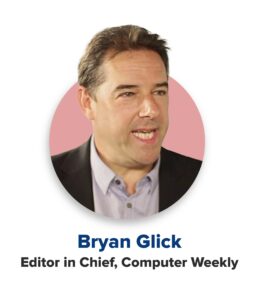

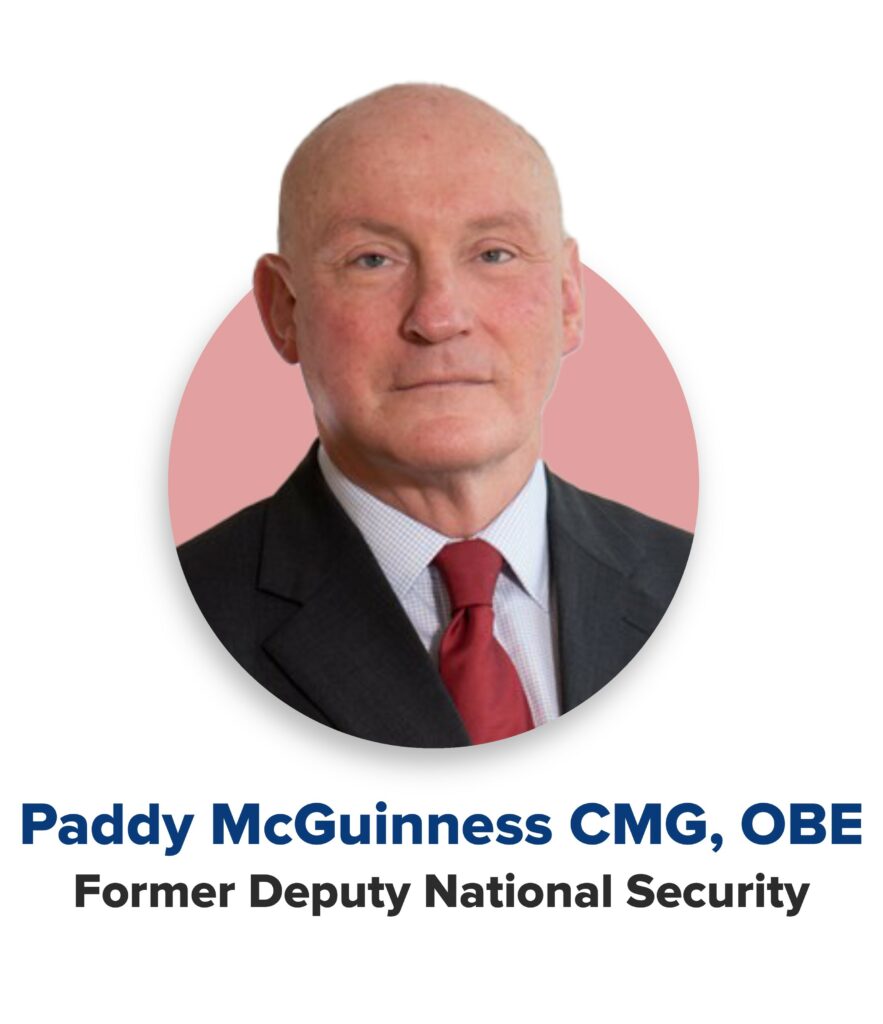

Monday 27th September 2021, 13:30 – 14:30
CPTPP and the Integrated Review:
How Should the UK Respond to the Growing Importance of the Indo-Pacific Region
The complex nature of emerging geopolitics and the contest for influence in the Indo Pacific region has focused the U.K.’s attention in a new and active way, hastened by the consequences of Brexit and Covid. Does the tilt to the Indo Pacific present opportunity or challenge to the UK or are we in danger of demonstrating our strategic impotence and contradictory national priorities? Does the announcement of the AUKUS defence arrangement signal the UK’s determination to act rather than just talk?
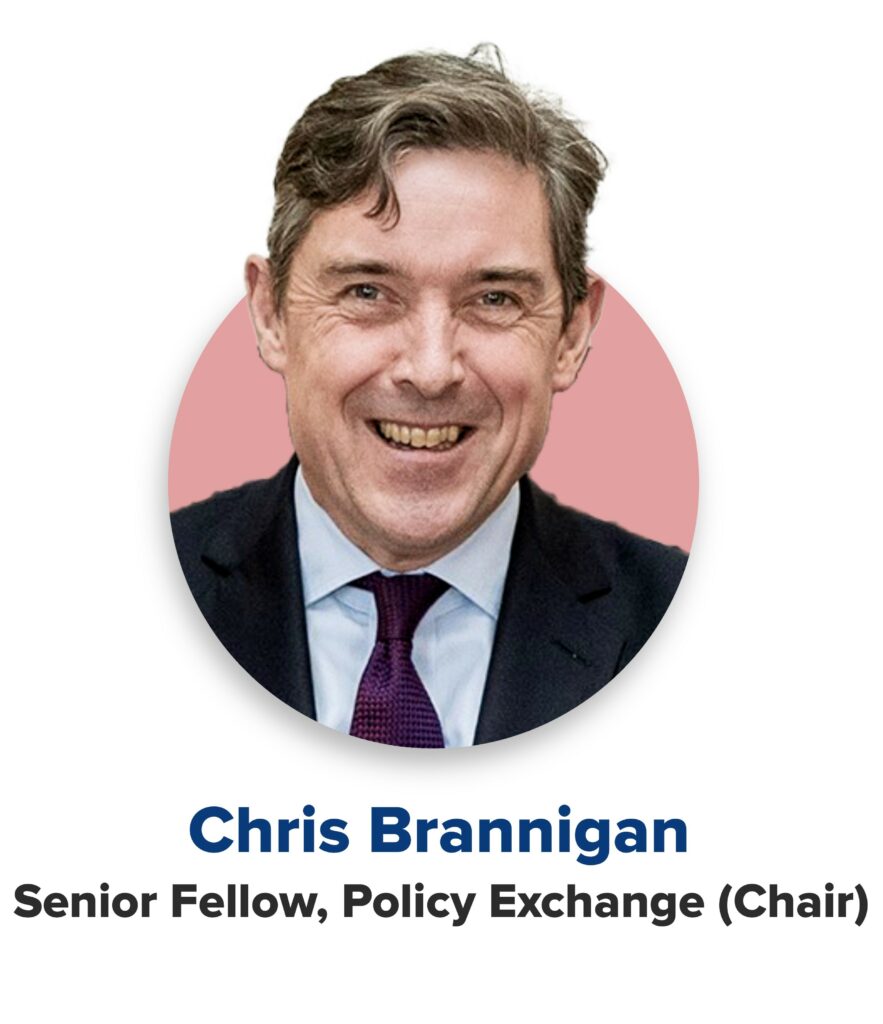
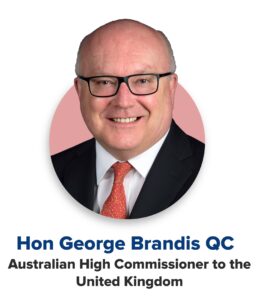
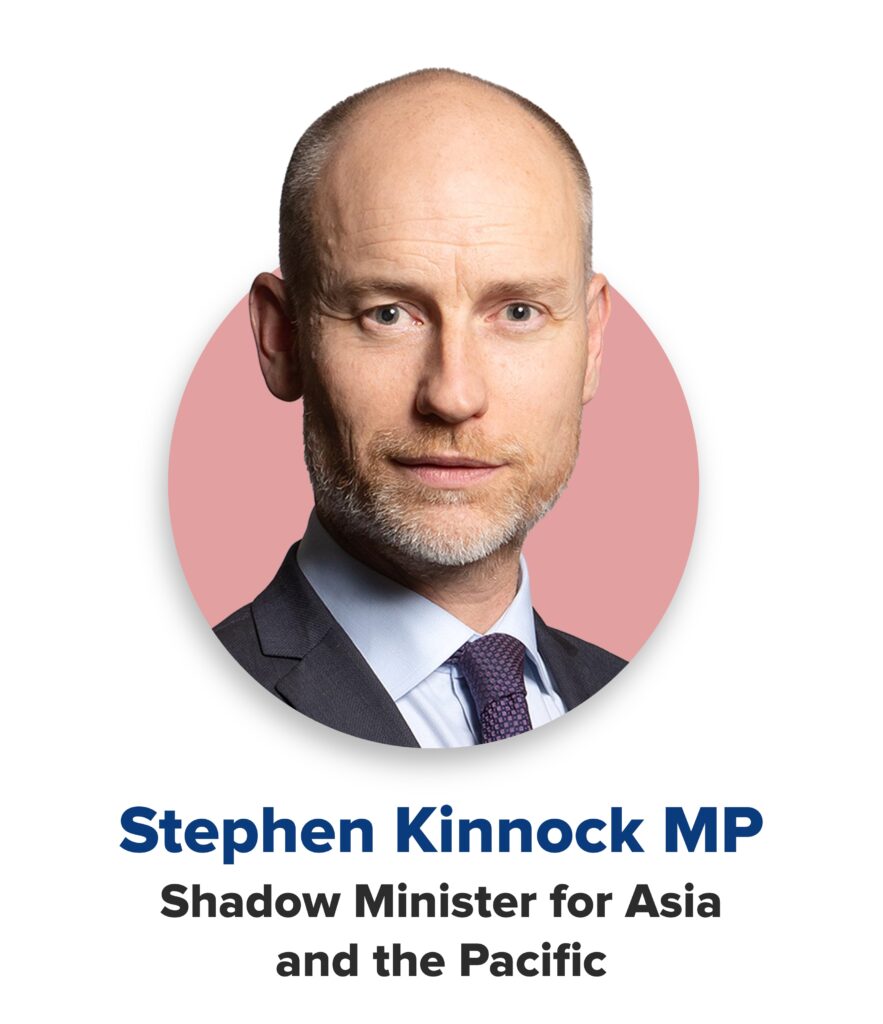
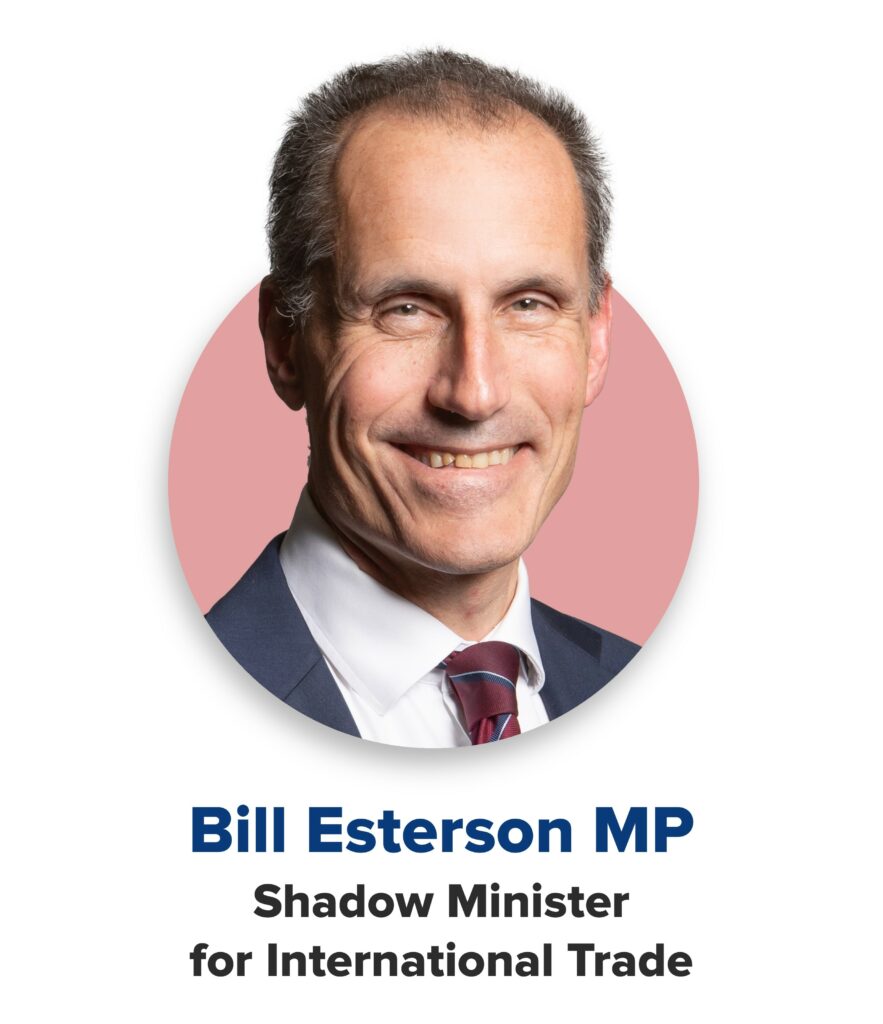

Speakers Include:
Chris Brannigan , Senior Fellow, Policy Exchange (Chair)
Hon George Brandis QC, Australian High Commissioner to the United Kingdom
Bill Esterson MP, Shadow Minister for International Trade
Stephen Kinnock MP, Shadow Minister for Asia and the Pacific
Dr Linda Yueh, Fellow in Economics at St Edmund Hall, Oxford University
Monday 27th September 2021, 15:00 – 16:00
The Road to Net Zero:
Decarbonising Road Transport
Transport is the number one contributor to UK emissions. The Government has recently published its Transport Decarbonisation Plan, which included a commitment to phase out the sale of new petrol and diesel cars by 2030.
What more does the Government need to do to deliver the phase out and to ensure that electric vehicles are practical for drivers?
Sponsored by:
Climate Group

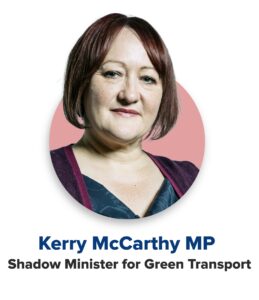

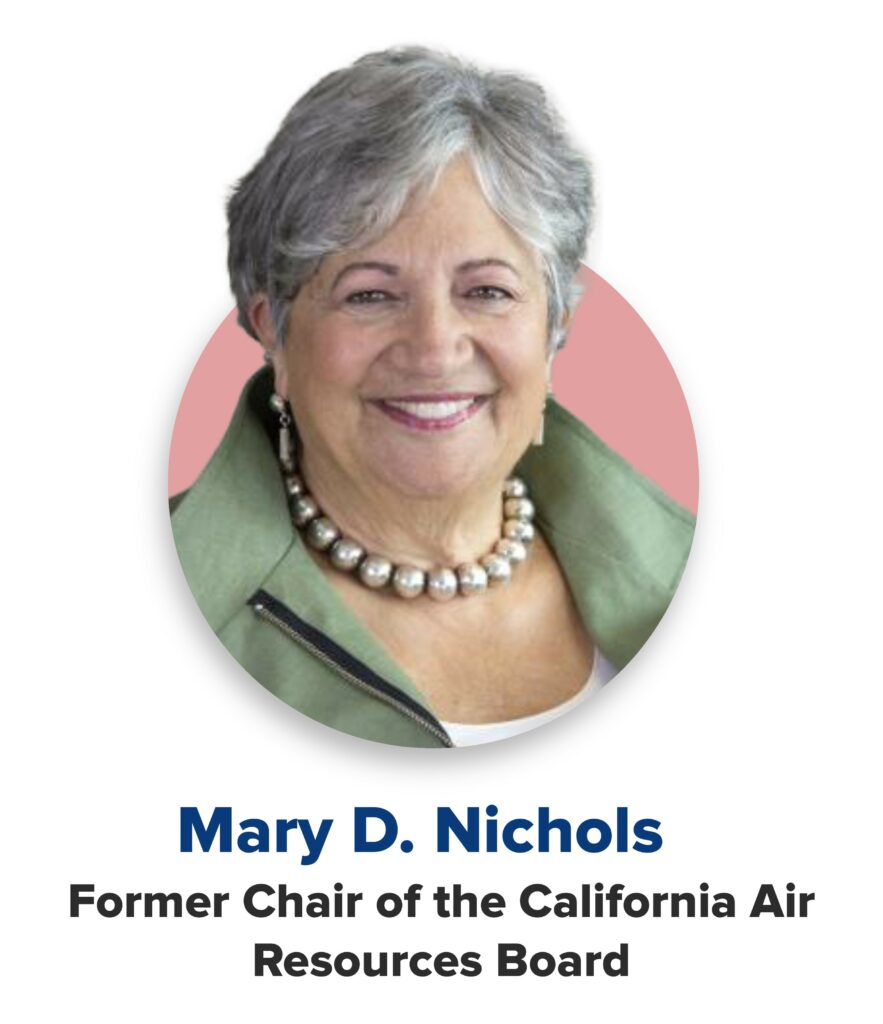





Speakers Include:
Ed Birkett, Senior Research Fellow, Energy and Environment, Policy Exchange (Chair)
Kerry McCarthy MP, Shadow Minister for Green Transport
Mary D. Nichols, former Chair of the California Air Resources Board
Clive Selley, CEO, Openreach
Steve Turner, Assistant General Secretary of Unite<iframe width=”560″ height=”315″ src=”https://www.youtube.com/embed/UKH1ZO2TU3w” title=”YouTube video player” frameborder=”0″ allow=”accelerometer; autoplay; clipboard-write; encrypted-media; gyroscope; picture-in-picture” allowfullscreen></iframe>
Tuesday 28th September 2021, 09:00 – 10:00
How can Regional Infrastructure and Investment Rebalance the UK?
This panel will discuss how to tackle geographic disparities and supporting struggling towns and regions to regenerate. It will discuss whether regional investment can address five interlinked challenges:
- A lack of local job opportunities beyond low-skilled, low-pay sectors such as retail, local services, agriculture and logistics, resulting in high levels of unemployment, low median wage and job insecurity.
- Low-quality and under-resourced public services, and an inability to retain and attract talent, resulting in poor outcomes for residents, including health, schools and community support.
- Weak local civic institutions, including at the local government level, in local educational establishments, local businesses and extending to local philanthropic investment.
- Low quality infrastructure and limited connectivity in a place and with the region.
- An overall sense of decline and loss of pride in place.
Sponsored by:
AECOM
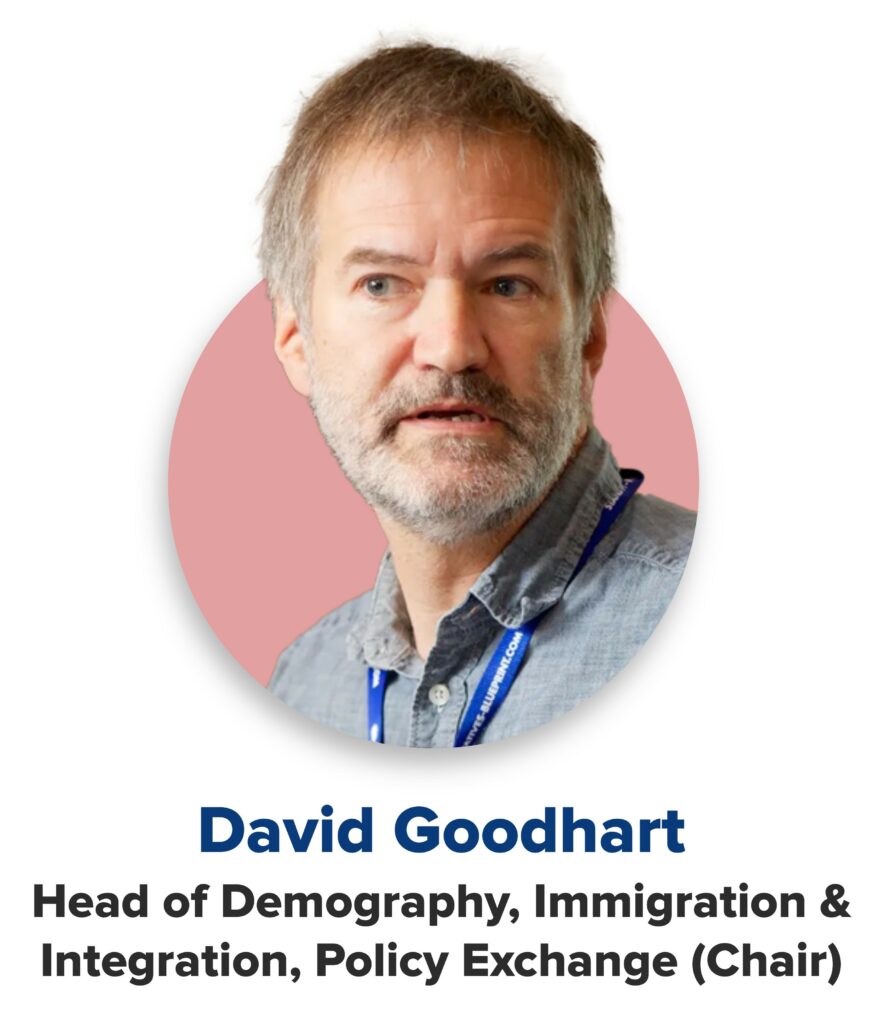



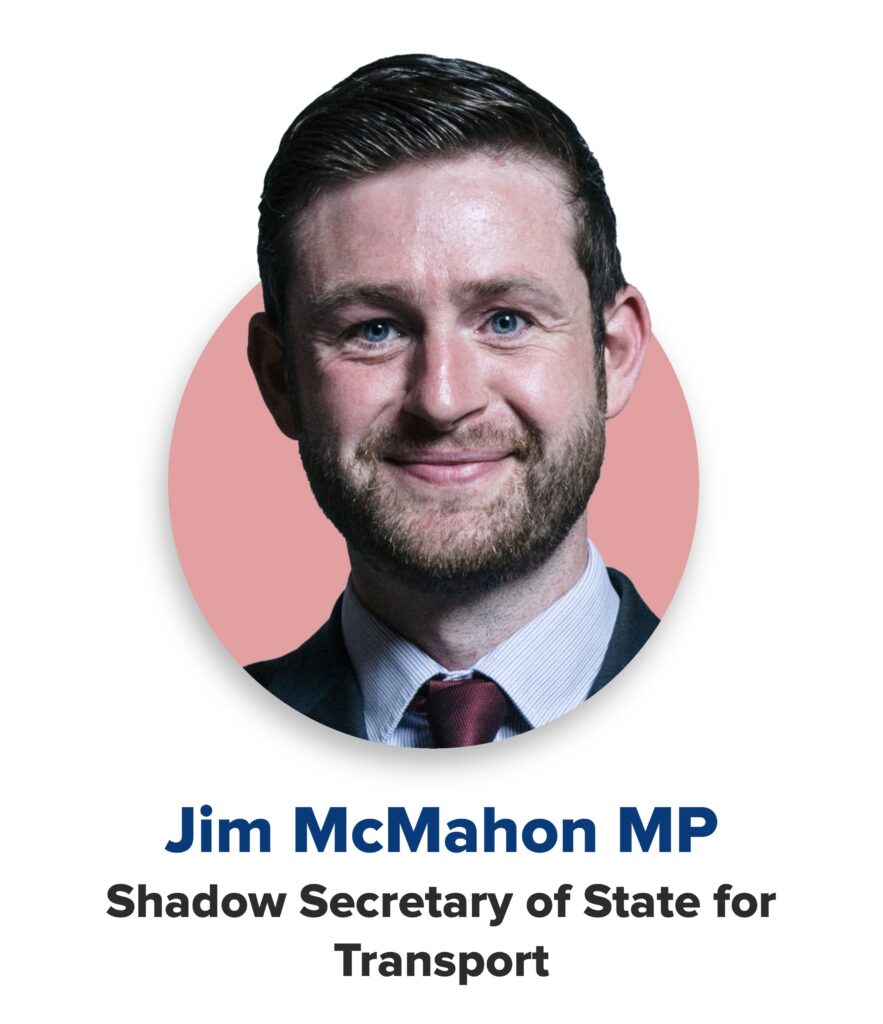



Speakers Include:
David Goodhart, Head of Demography, Immigration & Integration
Andrew Jones, Cities Programme Leader at AECOM
Jim McMahon MP, Shadow Secretary of State for Transport
John Mills, founder of JML and The John Mills Institute for Prosperity
Building Beautiful:
How Should New Buildings Reflect Popular Attitudes to Beauty?
As a core human commodity, beauty remains universally popular. The public tends to like beautiful buildings and architects rarely intentionally set out to design ugly ones. Why then is there a disconnect between what the public perceives to be beautiful and the architecture they are commonly given? Are buildings that strive for beauty succumbing to shallow populist pandering prioritising style over substance? Or is it time for architects to give the public the beauty they deserve?
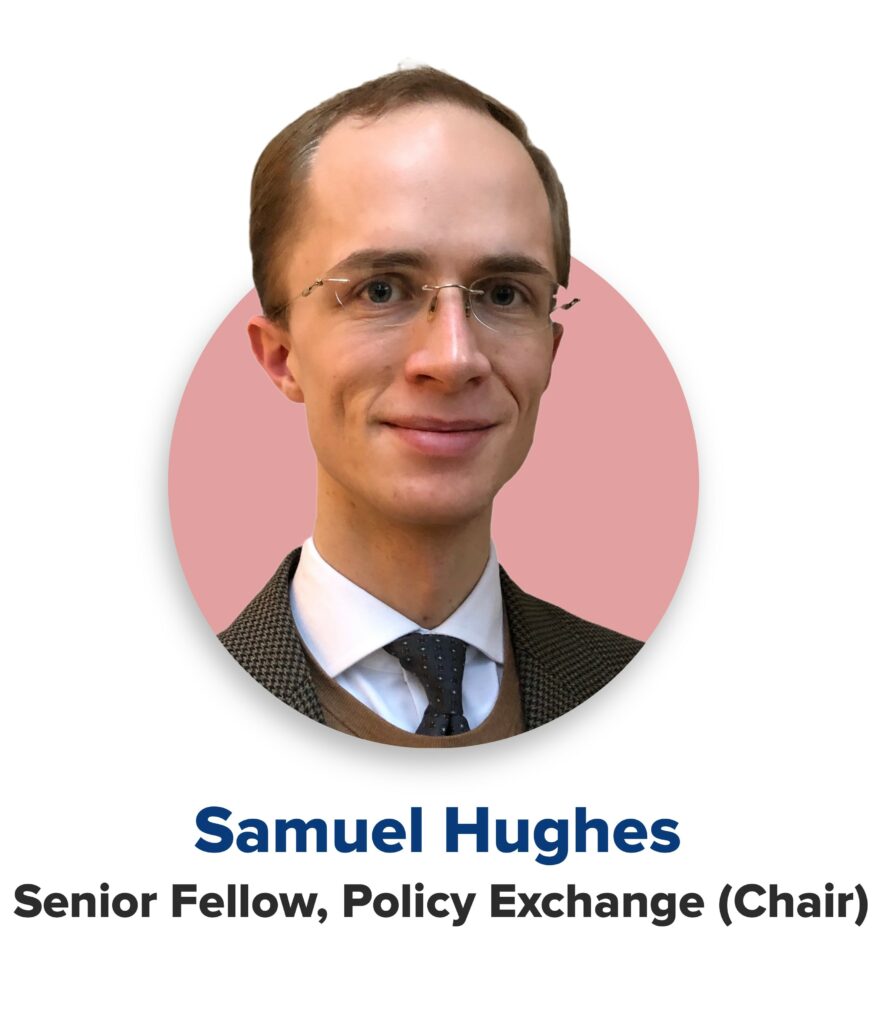



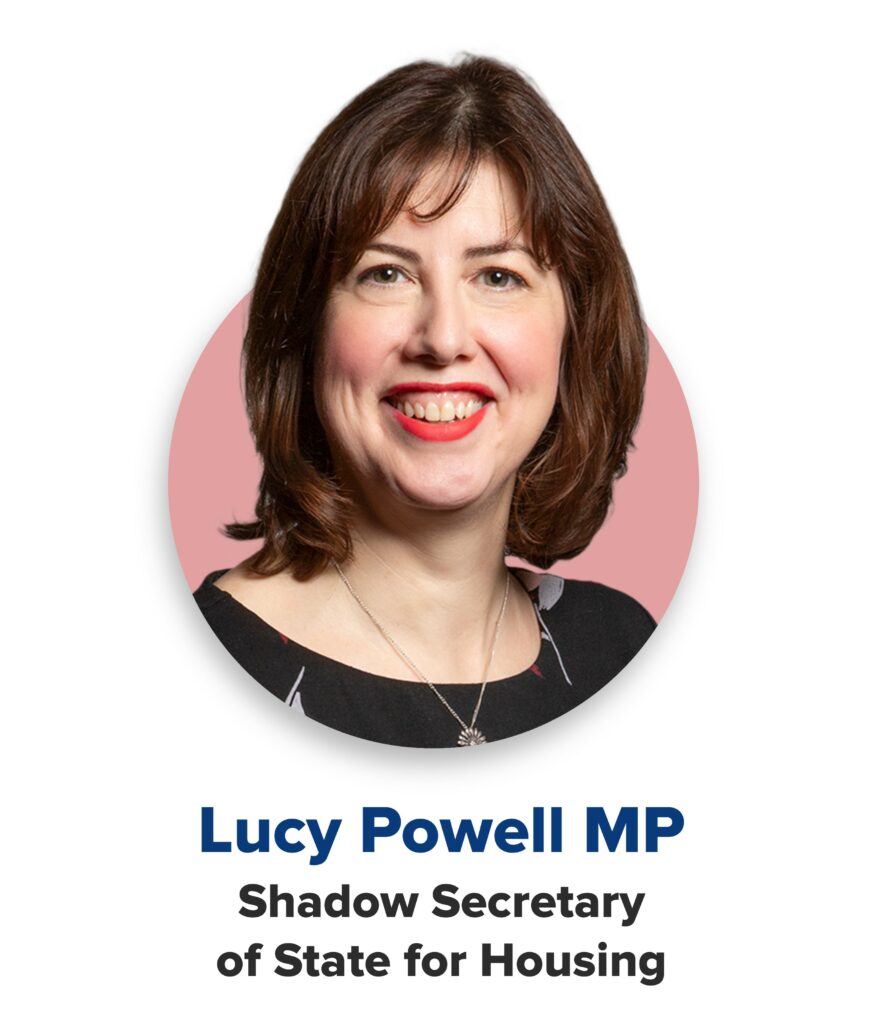

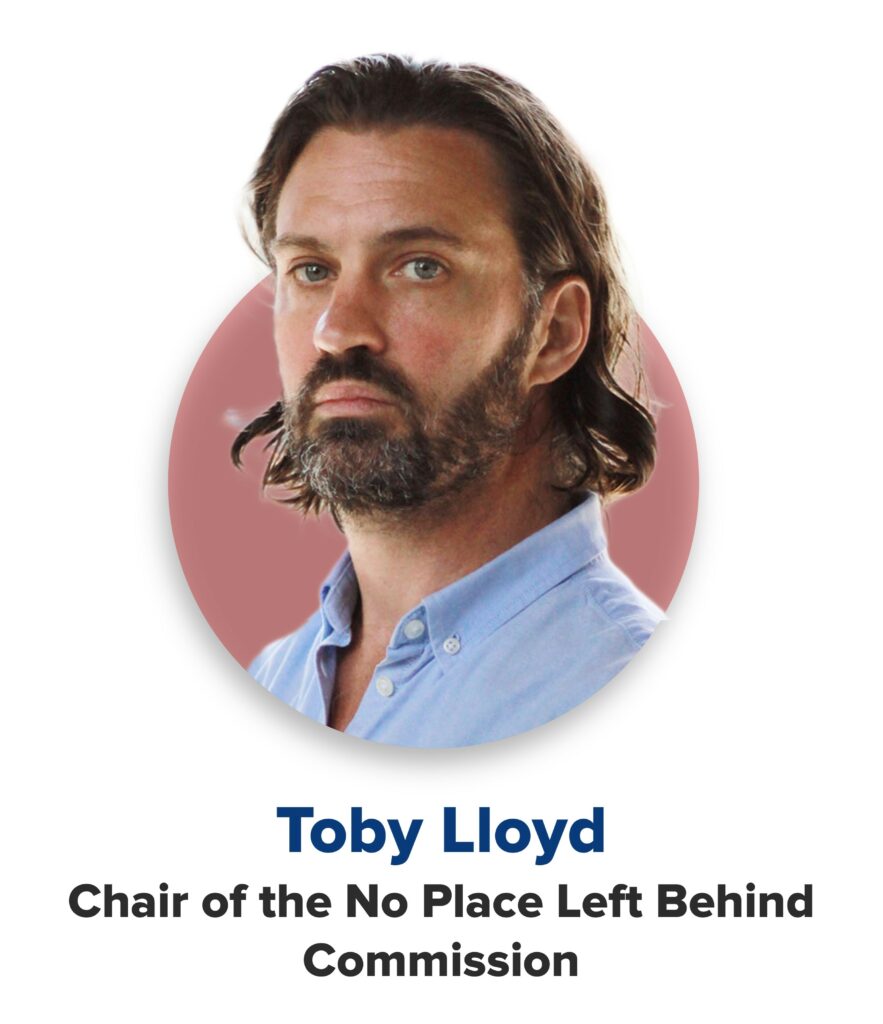

Samuel Hughes, Senior Fellow, Policy Exchange
Anya Martin, Director, PricedOut
Lucy Powell MP, Shadow Secretary of State for Housing
Toby Lloyd, Chair of the No Place Left Behind Commission
Tuesday 28th September 2021, 12:00 – 13:00
Envy of the World:
How can we deliver a leading health and care system after the pandemic?
No nation has the perfect health system. Yet the NHS has slipped from first to fourth place in the recent ranking of high income healthcare systems. What has gone wrong, and how can we put it right? In this panel discussion we will consider the steps required to make the NHS the envy of the world, exploring issues such as:
- Resources and measures required to return to the top spot. What does a sustainable settlement look like?
- The barriers preventing a shift towards a preventative healthcare system. To what extent will reforms to the system, including the Health and Care Bill help?
- The opportunities to work smarter as well as harder. How can we embrace technological change and lock-in the positive lessons from the pandemic?
Sponsored by:
Palantir






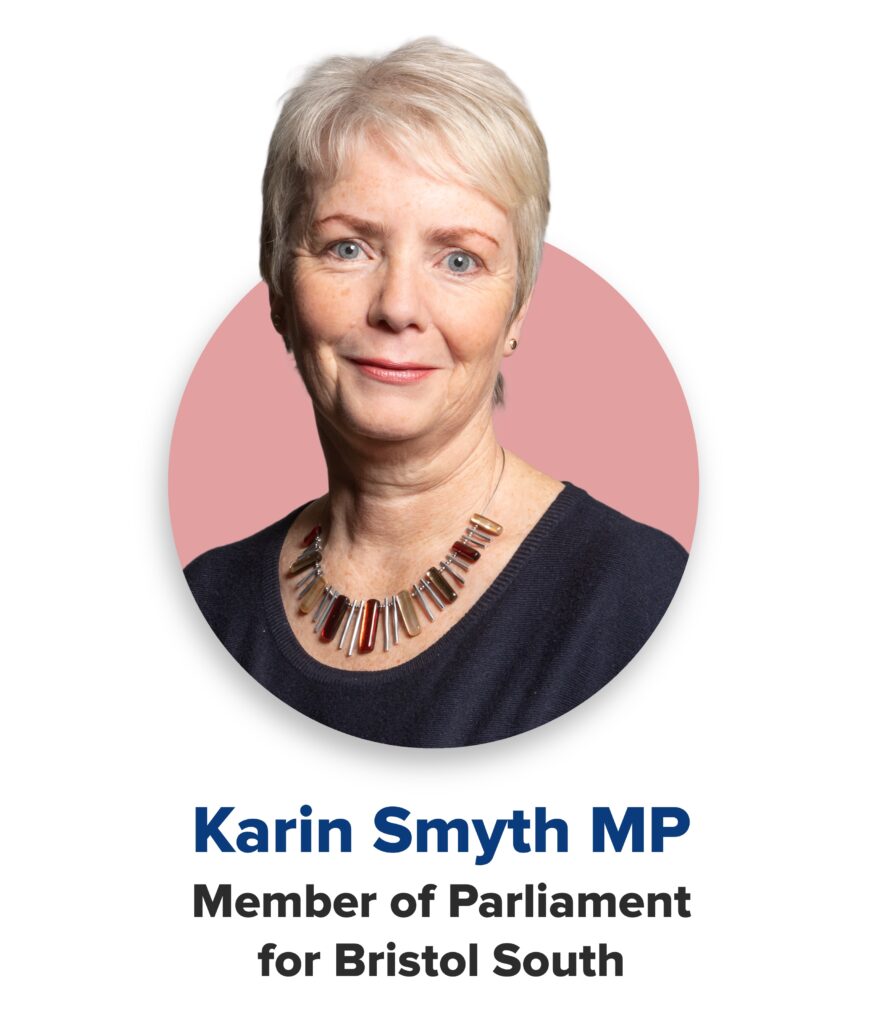



Speakers Include:
Robert Ede, Head of Health and Social Care, Policy Exchange (Chair)
Fiona Carragher, Director of Research and Influencing, Alzheimer’s Society
Louis Mosely, Head, Palantir UK (event sponsor)
Karin Smyth MP, Member of Parliament for Bristol South and Member, Public Bill Committee (Health and Social Care Bill)
Shaun Walsh, Head of Public Affairs, Cancer Research UK
Tuesday 28th September 2021, 15:00 – 16:00
Net Zero – Who pays what?
With HM Treasury soon to publish its ‘Cost of Net Zero’ review and the COP26 climate conference taking place in November, scrutiny of the cost implications of delivering Net Zero for households will ramp up.
But what will Net Zero mean for the UK wide economy, regional economies and homeowners? Who will pay what? And can it really help drive economic growth?



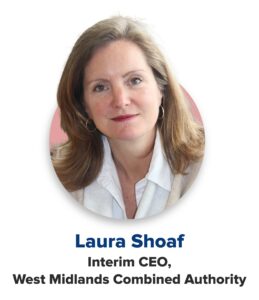



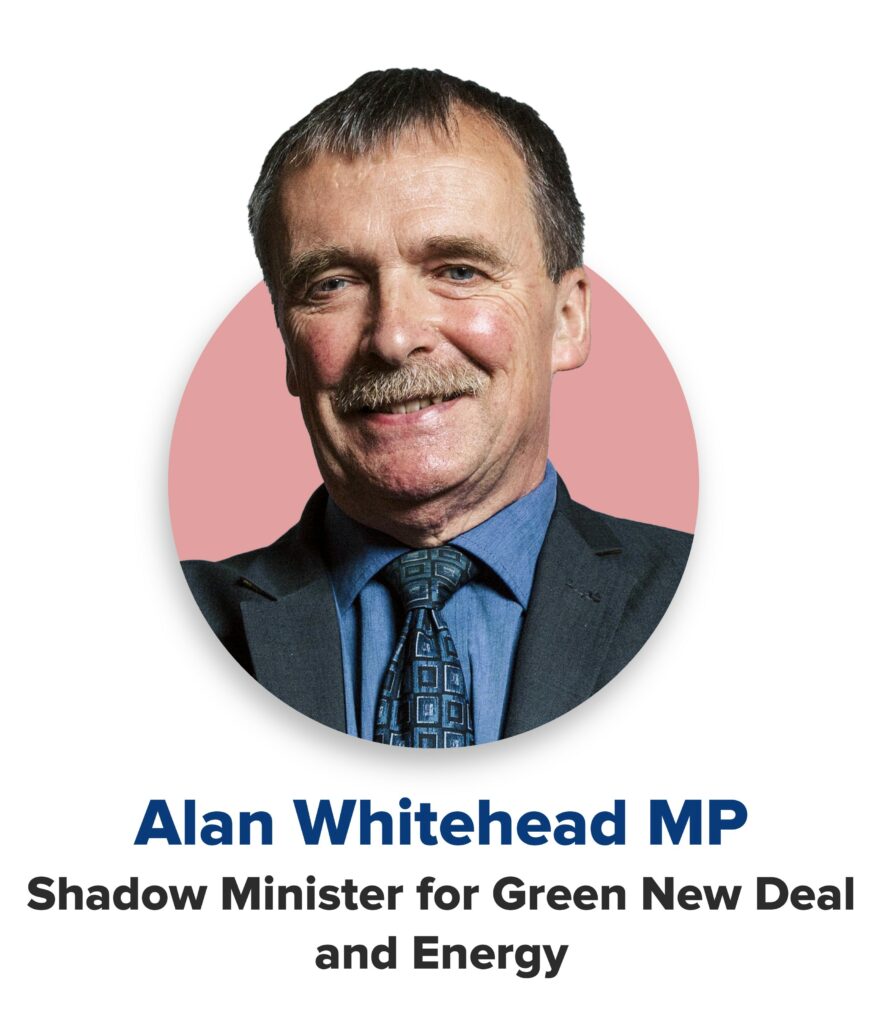



Speakers Include:
Ed Birkett, Senior Research Fellow, Energy and Environment, Policy Exchange (Chair)
Clementine Cowton, Director Of External Affairs at Octopus Energy Group
Laura Shoaf, Interim CEO, West Midlands Combined Authority
Dhara Vyas, Head of Future Energy Services at Citizens Advice
Alan Whitehead MP, Shadow Minister for Green New Deal and Energy
Tuesday 28th September 2021, 16:30 – 17:30
Fighting on All Frontiers:
How can UK Armed Forces develop their Integrated Operating Capabilities
The capabilities necessary to implement the Integrated Operating Concept draw upon resources spread between separate government departments. The government’s Integrated Review sought to provide the necessary tools and authority to make this effective, but will it achieve this goal within the specified timeframe of 2025?
Is a new national doctrine required, rather than one which is most strongly associated with Defence? Countering disinformation, resourcing the UK’s Space Command capabilities, and countering constant cyber challenges are issues that require action now, not decisions to be postponed.
What should our national priorities be to achieve the objective of being able to “fight on all frontiers?”
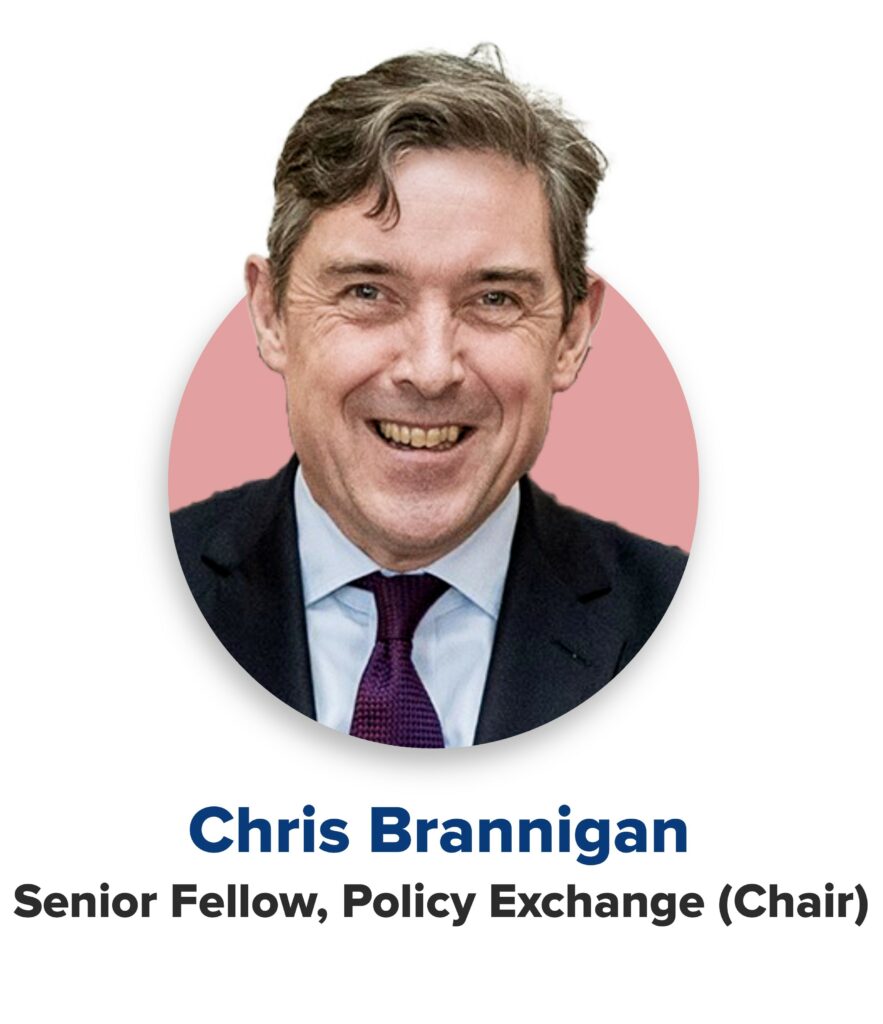

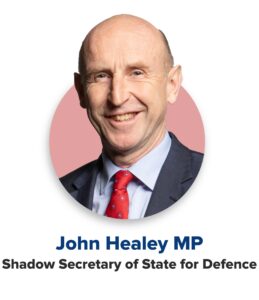





Speakers Include:
Chris Brannigan , Senior Fellow, Policy Exchange (Chair)
John Healey MP, Shadow Secretary of State for Defence
Khalid Mahmood MP, former Shadow Minister for Defence Procurement
Julie Marionneau, Research Fellow, Judicial Power Project, Policy Exchange
Tuesday 28th September 2021, 18.00 – 19:00, The Cambridge Room
Book launch of ‘Broken Heartlands: A Journey Through Labour’s Lost England’, Sebastian Payne in-conversation with Lisa Nandy MP
Sebastian Payne discusses his debut book Broken Hearlands with Lisa Nandy MP, Shadow Foreign Secretary.
About the book
Historically, the red wall formed the backbone of Labour’s vote in the Midlands and the North of England but, during the 2019 general election, it dramatically turned Conservative for the first time in living memory, redrawing the electoral map in the process.
Originally from the North East himself, Payne sets out to uncover the real story behind the red wall and what turned these seats blue. Beginning in Blyth Valley in the North East and ending in Burnley, with visits to constituencies across the Midlands and Yorkshire along the way, Payne gets to the heart of a key political story of our time that will have ramifications for years to come.
While Brexit and the unpopularity of opposition leader Jeremy Corbyn are factors, there is a more nuanced story explored in Broken Heartlands – of how these northern communities have fared through generational shifts, struggling public services, de-industrialization and the changing nature of work. Featuring interviews with local people, plus major political figures from both parties – including Boris Johnson and Sir Keir Starmer – Payne explores the significant role these social and economic forces, decades in the making, have played in this fundamental upheaval of the British political landscape.


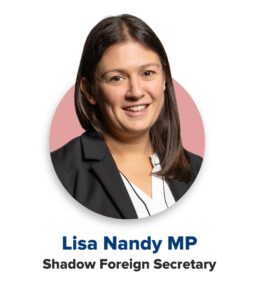

Speakers Include:
Lisa Nandy MP, Shadow Foreign Secretary
Sebastian Payne, Author of Broken Heartlands
